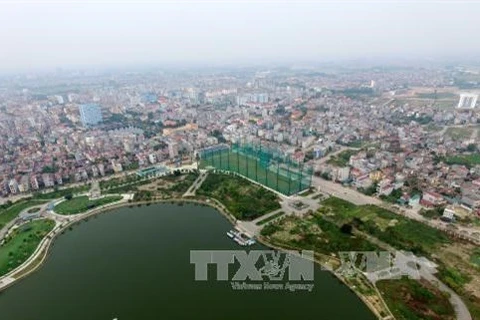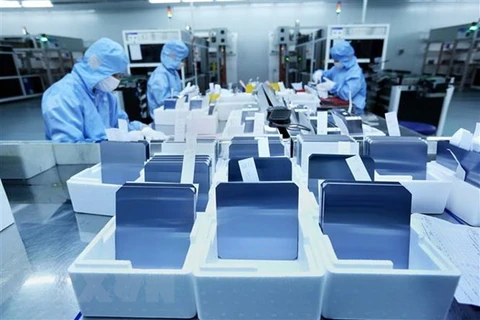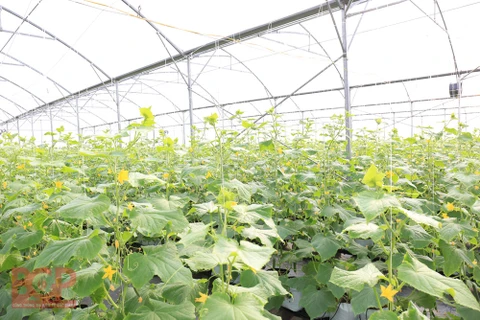Duong said that in the area of industry, the province will prioritise projects with a high proportion of high, new, green and economical technology, using domestic materials and having commitment in technology transferring and labour training.
The province has designed particular areas for projects in different fields, including industry, agriculture, tourism, services, urban areas, logistics, entertainment and health care.
For foreign-invested projects, Bac Giang will strive to lure partners which haveg global trademarks with high financial capacity, long-term operation, and projects in supporting industries.
For domestically-invested projects, the province will call for investment from businesses in the list of 500 largest firms of Vietnam (VNR500), especially in areas of agriculture, trade and services.
Nguyen Cuong, Deputy Director of the provincial Department of Planning and Investment, said that in the first two months of 2021, Bac Giang attracted over 588 million USD in investment, 4.5 times higher than that in the same period last year.
Notably, the province granted investment licences to a number of large projects, including 270-million-USD Fukang Technology Factory invested by Foxconn Singapore PTE Ltd, and a 210 million-USD Ja Solar PV Vietnam project funded by Ja Solar Investment (Hong Kong) Limited.
Recently, the Prime Minister has agreed to build three industrial parks and expand three other IPs in Bac Giang province.
In 2020, Bac Giang granted new licences and permitted additional investment to 215 projects with total investment of nearly 1.4 billion USD, up 7.3 percent year on year, rising to the ninth position among provinces and cities nationwide in FDI attraction.
In the period from 2021 to 2030, 16 industrial parks will be formed, adding 5,044 hectares to the total area of industrial parks in the province. Meanwhile, 22 industrial clusters will be formed or expanded with total area of 1,321 hectares, making the province ready in terms of “clean” land for receiving investment projects, creating a momentum for economic development.
Bac Giang will also work to ensure that the expansion of industrial parks and clusters is made in association with the protection of security and defence, as well as the protection of ecological environment and food safety.
Meanwhile, industrial areas will have synchronous infrastructure in terms of electricity and water supply, transportation, and telecommunications, along with the construction of urban, service and trade areas as well as housing for workers and other social infrastructure systems such as health care and education.
In industrial parks, the province will encourage companies with high and green technologies in electricity, electronics, telecommunications equipment, precision engineering, and support industry.
In industrial clusters, Bac Giang will call for small and medium-scale projects in production, which use local workers, with priority on projects in food and agricultural product processing.
In the time ahead, Bac Giang will also focus on speeding up the construction of the Bac Giang city logistics centre, thus making it coherent with the development of industrial parks and clusters and optimising the flow of goods and currency, reducing cost and enhancing goods value. This will help improve the supply chain and expand multi-form transportation, enhancing the locality’s attraction to investors.
Currently, Bac Giang has 1,322 hectares of industrial parks and 1,384 hectares of industrial clusters.
The province has attracted 1,269 domestically-invested projects worth over 88 trillion VND (3.79 billion USD at current exchange rate), along with 461 foreign-invested projects with combined capital of more than 6.1 billion USD.
Despite the impacts by the COVID-19 pandemic, in the first six months of 2020, Bac Giang enjoyed a 9.2 percent year-on-year growth in industrial production to 115 trillion VND, fulfilling 41.8 percent of the locality’s target for the whole year./.
























